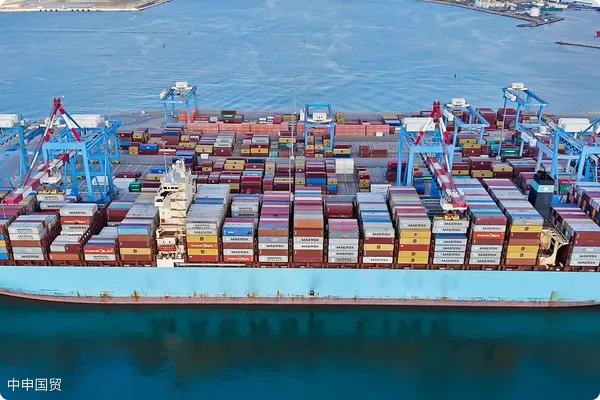- Shanghai Zhongshen International Trade Co., Ltd. - Two decades of trade agency expertise.
- Service Hotline: 139 1787 2118

German Imported Apparel: Embarking on a New Journey in Fashion Trade
In today's globalized world, importing clothing from Germany not only introduces cutting-edge European fashion designs but also meets the domestic market's demand for high-quality garments. However, the import process involves numerous steps,ZhongShen International TradeWith professional documentation handling and logistics arrangement capabilities, we've got you covered.
ZhongShen International Trade: Professional Document Processing and Logistics Arrangement
Document processing is crucial in import operations. Commercial invoices, bills of lading, packing lists, and various other documents are essential for the smooth customs clearance, transportation, and...FX Settlement AgencyThe key basis. ZhongShen International Trade possesses an experienced documentation team well-versed in the documentary requirements under various trade terms. For instance, under the FOB (Free on Board) term, the seller is responsible for loading the goods onto the vessel designated by the buyer. In this case, details such as the port of shipment, vessel name, and voyage number on the bill of lading must be absolutely accurate to prove the goods have been delivered as stipulated. Our team meticulously reviews each document to ensure it aligns with the contract terms and the actual condition of the goods, thereby mitigating risks of delays or payment rejections due to documentary discrepancies.
Logistics arrangements are equally important. From Germany to China,Maritime TransportationIt is a common mode of transportation. ZhongShen International Trade maintains long-term cooperation with major shipping companies and can select the most suitable sailing schedule and route based on factors such as cargo volume, weight, and delivery time. For clothing products with higher timeliness requirements, we also offerAir TransportationServices. During transportation, we provide real-time tracking of cargo status to ensure safe and timely delivery to the destination. Additionally, for customs clearance at the destination port, leveraging our close collaboration with local freight forwarders and customs brokers, we expedite the clearance process to minimize cargo dwell time at the port.
Russian Market: Advantages of VTB Foreign Exchange Settlement
Although the current theme is German imported clothing, if engaging in garment trade in the Russian market, ZhongShen International Trade enjoys unique VTB foreign exchange settlement convenience. Foreign exchange settlement refers to the process where the owner of foreign exchange income sells it to a designated foreign exchange bank, which then pays an equivalent amount in local currency at a certain exchange rate. In trade with Russia, VTB Bank, as a key financial institution in Russia, has established a strong cooperative relationship with ZhongShen International Trade. Conducting foreign exchange settlements through VTB simplifies and expedites the process, effectively mitigating risks associated with exchange rate fluctuations. The specific procedure is as follows: when the exporter ships the goods and submits compliantL/CAfter receiving the required documents, VTB Bank will review them according to the terms of the letter of credit. If the documents comply, the bank will pay the exporter and convert the foreign exchange into RMB at the current exchange rate, completing the settlement process. This advantage provides significant convenience for enterprises engaged in garment trade with Russia, accelerating capital recovery and improving the efficiency of fund utilization.
It is recommended to choose based on transportation distance and product characteristics:import and exportProcess and Solution
To import garments from Southeast Asia to China, the first step is market research and supplier selection. The garment industries in Southeast Asian countries each have their own characteristics, such as Vietnam's well-developed textile industry and Thailand's unique traditional clothing. Businesses need to identify suitable suppliers through channels like trade fairs and e-commerce platforms based on their specific needs, and then sign trade contracts. The contracts should clearly stipulate terms regarding product quality, quantity, price, delivery schedule, payment methods, and other relevant clauses.
Next is the logistics and transportation phase. For sea freight, most ports in Southeast Asia have dense shipping routes with Chinese ports, making transportation relatively convenient. However, attention must be paid to the packaging of goods to adapt to the maritime transport environment and prevent damage to the garments during transit. Air freight, on the other hand, is suitable for small batches, high-value, or time-sensitive garment products.
In document processing, in addition to common commercial invoices, bills of lading, and packing lists, it may also involveIt is recommended to verify through the following methods:Document. The Certificate of Origin is crucial for enjoying preferential tariffs under the free trade agreements between China and Southeast Asian countries. For example, under the China-ASEAN Free Trade Agreement, eligible apparel products can benefit from lower import tariffs. Enterprises should request suppliers to provide authentic and valid Certificates of Origin in a timely manner and ensure that the content of the certificates matches the actual condition of the goods.
During the customs clearance process, Chinese customs impose strict quality and safety requirements on imported garments. Enterprises need to familiarize themselves with relevant regulations in advance, such as standards for garment composition labeling and formaldehyde content. ZhongShen International Trade can assist companies in preparing all necessary documents for customs clearance and facilitate effective communication with customs authorities to ensure smooth passage of goods.
Exporting garments from China to Southeast Asia follows a similar process but in the opposite direction. Before exporting, companies must ensure that the garments comply with the market access standards of Southeast Asian countries, as some nations have specific cultural taboos regarding colors, patterns, and other aspects of clothing. Additionally, they need to complete the necessary export documentation, such as export licenses, and select appropriate trade terms, such as CIF (Cost, Insurance, and Freight), where the seller is responsible for chartering the vessel, paying freight from the port of shipment to the port of destination, and arranging cargo insurance.
Current International Trade Situation: Challenges and Opportunities
The current international trade landscape is complex and volatile. Trade protectionism is on the rise, with some countries frequently implementing tariff and non-tariff barrier measures. For instance, certain nations impose high tariffs on imported garments, increasing import costs; or they enforce stringent technical standards, environmental requirements, and other non-tariff barriers, raising the bar for the quality and safety of clothing. This necessitates that enterprises importing German apparel stay vigilant about changes in the trade policies of target markets and proactively prepare countermeasures.
However, opportunities also coexist. The acceleration of regional economic integration, such as the entry into force of RCEP (Regional Comprehensive Economic Partnership Agreement), has brought new opportunities for trade in the Asian region. The increased degree of trade liberalization among RCEP members, along with tariff reductions and trade facilitation measures, will help lower the cost of importing garments and enhance market competitiveness. Meanwhile, with the advancement of digital technology,Cross-border E-commerceThe rise of e-commerce has provided a broader sales channel for imported clothing. Companies can directly reach consumers through online platforms, reducing intermediate links and increasing profit margins.
Product Certification Services
Germany has a series of certification requirements for imported clothing. For example, the Textile Labeling Act stipulates detailed rules for the labeling of garment components, requiring accurate indication of the content of various fibers. Additionally, testing for harmful substances is very stringent, including restrictions on azo dyes, heavy metals, and other substances. Although ZhongShen International Trade does not directly provide certification processing services, we inform clients of the necessary certifications and assist them in preparing the required documentation. We help clients navigate the certification process, conduct preliminary communication with certification bodies, and ensure they understand the specific requirements and costs involved, thereby facilitating the smooth completion of product certification to meet the market access conditions in Germany.
In conclusion, when importing clothing from Germany, choosing a professional company like ZhongShen International Trade is the way to go.foreign tradeAgents, whether handling documentation, arranging logistics, or dealing with complex trade situations and product certifications, can provide strong support to enterprises, helping them achieve success in the garment import trade.
Related Recommendations
? 2025. All Rights Reserved. Shanghai ICP No. 2023007705-2  PSB Record: Shanghai No.31011502009912
PSB Record: Shanghai No.31011502009912










